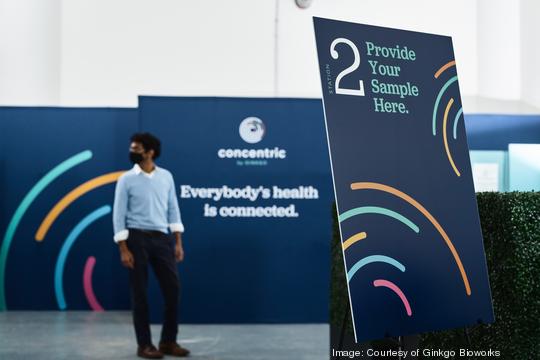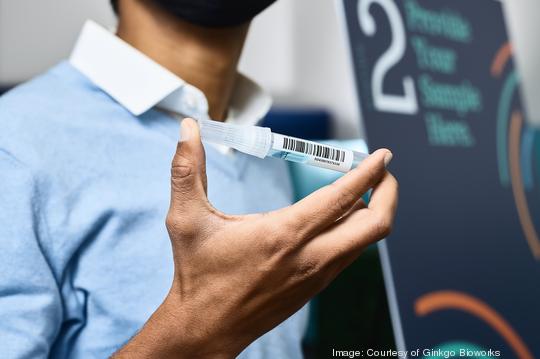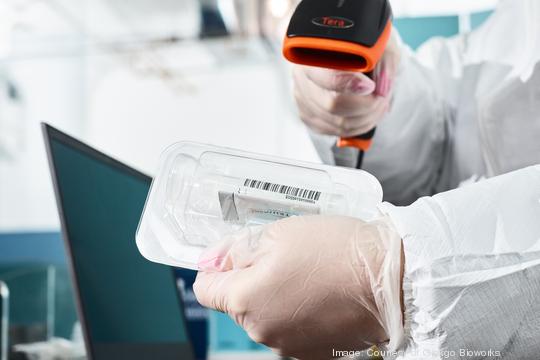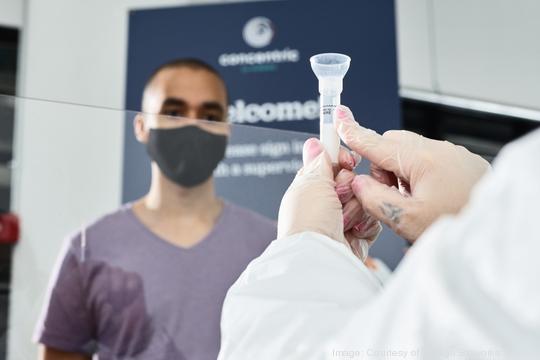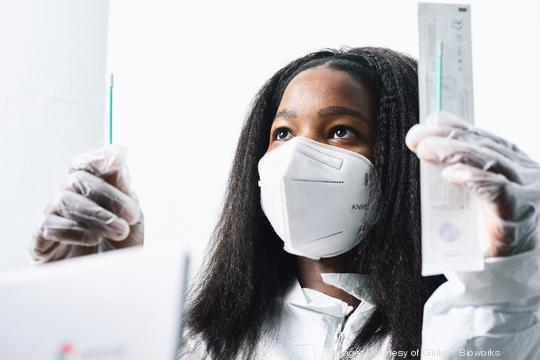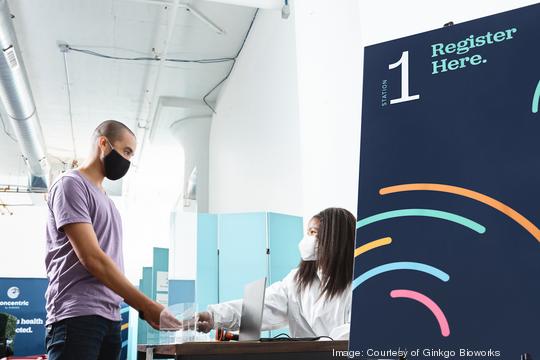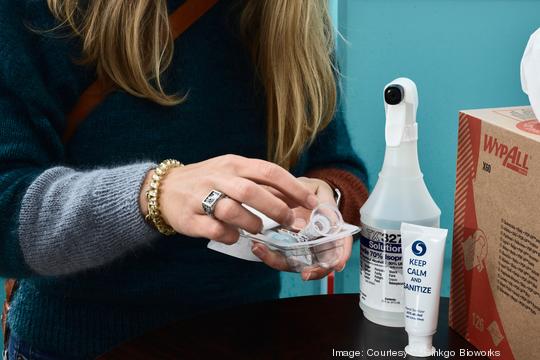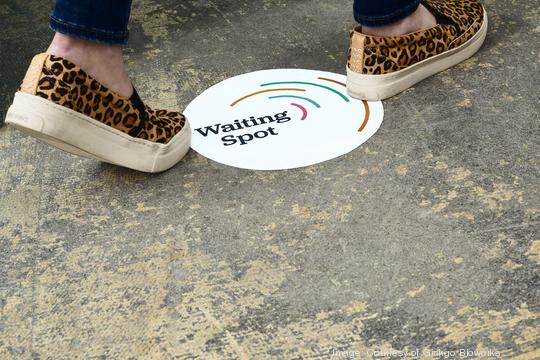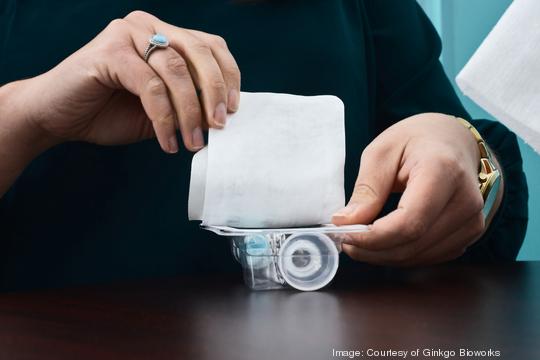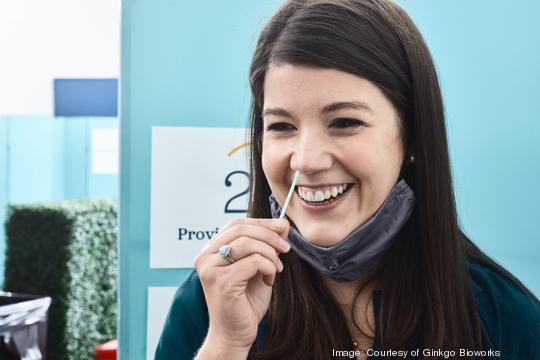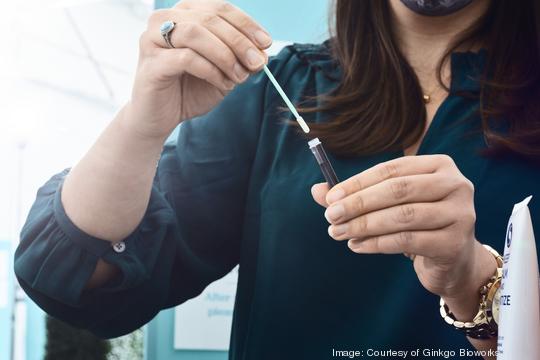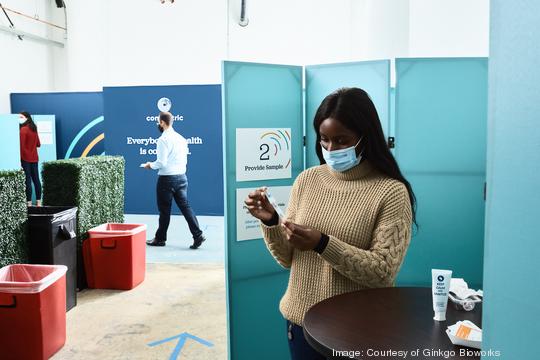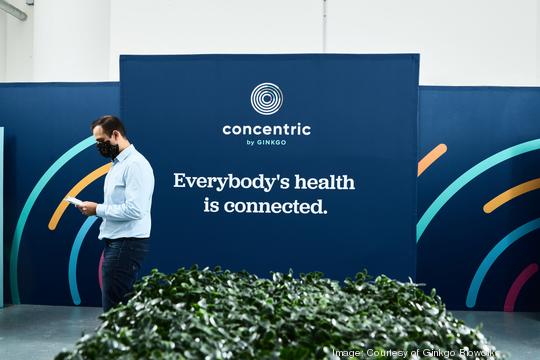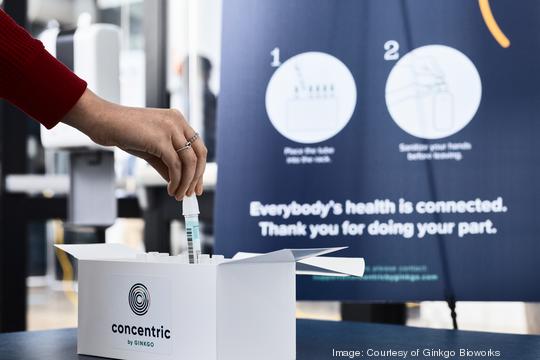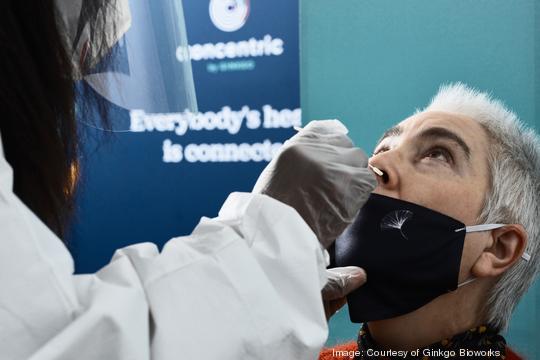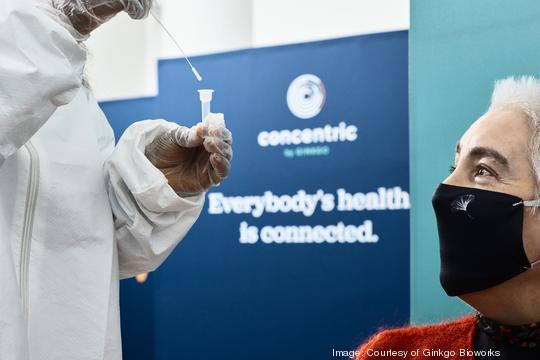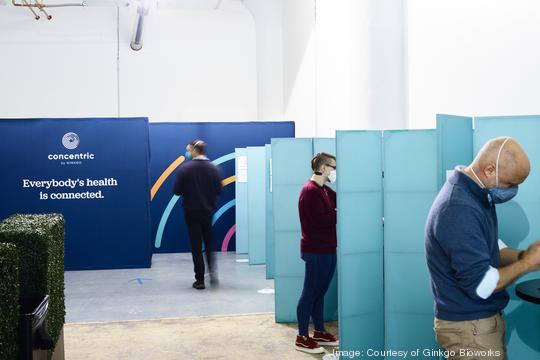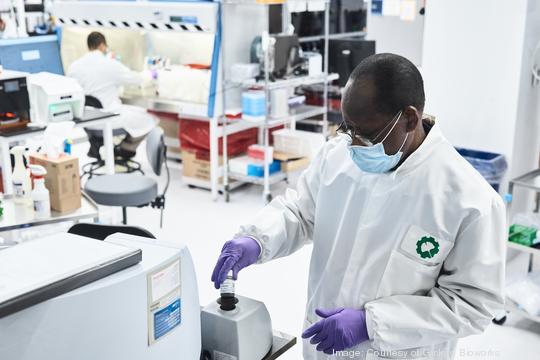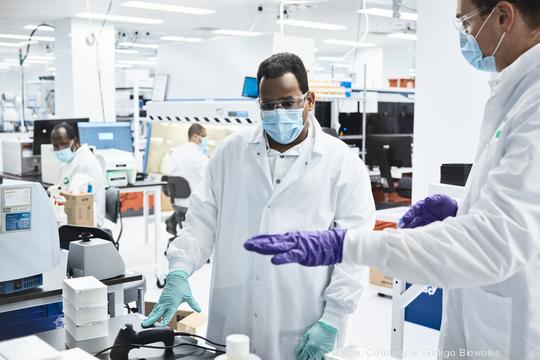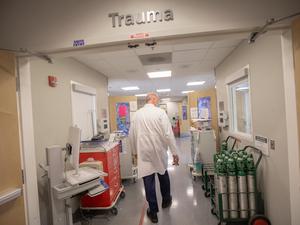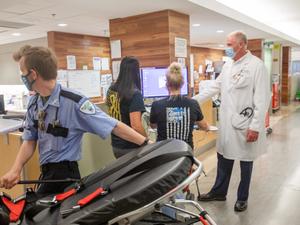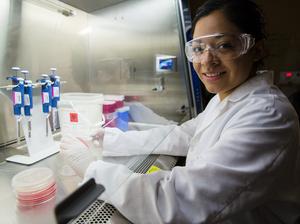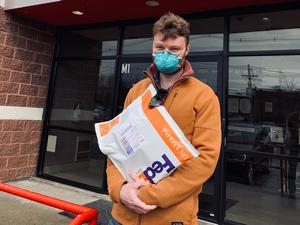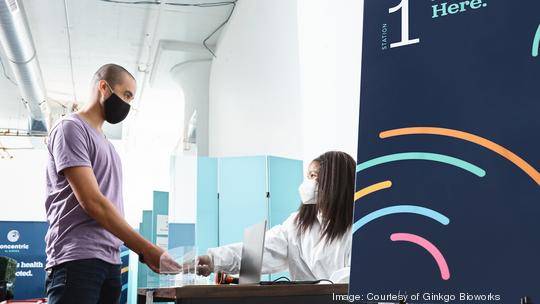
For Jason Kelly, co-founder and CEO of 12-year-old biotech Ginkgo Bioworks, the most powerful tool to fight the Covid-19 pandemic is simple: testing as many people as possible, as often as possible.
He points to models set by higher education institutions like Northeastern University and Boston University, which both test tens of thousands of students for the coronavirus every couple of days. Colleges with such testing protocols have minimized outbreaks, Kelly says, which he thinks should be proof of concept for political and public health leaders everywhere.
"They have set an example for the country, in my opinion," Kelly said. "Why aren't we doing that in Boston? Why aren't we doing that for everyone? We would be done."
Partly in answer to Kelly's own questions, Ginkgo Bioworks has created a facility capable of processing 100,000 tests a day, and possibly even more down the line.
It started back in May, when the startup secured $70 million from Illumina, General Atlantic and Viking Global Investors to start building infrastructure for large-scale testing, using next-generation sequencing machines from Illumnia that can read thousands of coronavirus test samples simultaneously. Two months later, it was awarded another $40 million from the National Institutes of Health (NIH) to expand on that effort.
Reading the tests is one thing. Conducting them in the first place — an effort where the United States has consistently fallen short — is another. So Ginkgo has also launched its own testing practice, "Concentric by Ginkgo," with the goal of propping up Covid-19 testing sites at schools and businesses, scaling testing services across the country.
The first Concentric site opened on the first floor of Ginkgo Bioworks' facility in the Seaport District this fall. Kelly says the site now tests around 600 people every day, using both nasal swabs (PCR tests) and spit tests.
"We're trying to make it as easy as possible to come in and get a test for Covid without it being a horrible experience," Kelly said. "You walk in. It's a self-collection. You don't need a health care provider to get it from you. You spit in a tube or do a Q-tip in the nose — lower nasal swabs, not any of the ones that are way up."
Once the tests are collected, they move quickly through Ginkgo's facility, which is more like a factory than a lab. Boxes of tests are whisked down metal tracks. Green, robotic arms pick up and move hardware as needed. There are stations where human operators can stand to oversee things, but the level of automation is what will enable Ginkgo to scale its test processing, Kelly said.
The company, founded in 2008, brands itself as "the organism company," with a main initiative to use genetic engineering to design and print new DNA for a variety of organisms. However, its expertise in molecular biology has led to a variety of other initiatives, including spinout startups Motif Foodworks, which is developing alternative proteins; and Allonnia, which is addressing problems in waste management.
Kelly said the challenge in scaling coronavirus test processing is ultimately a problem of molecular biology lab automation, which make Ginkgo particularly well-suited to address it. Ginkgo's ability to automate the process is what led the NIH to fund Ginkgo over other applicants, he said.
For the companies located in the Innovation and Design Building — which houses Ginkgo as well as MassChallenge, Autodesk, BluEdge and plenty of others — the tests conducted in-house go directly to Ginkgo's facility. When Concentric sites are set up elsewhere, Ginkgo will handle shipping. Companies and schools with testing sites will pay Ginkgo $95 for each PCR test, but Kelly expects to lower that price as the processing facility increases its daily throughput.
"What I'd like to see is something like this in every office building in the city," Kelly said. "Get your coffee and get a test. It'd just be a regular part of people's lives, so we can catch people when they don't know they have it."
Ginkgo's first focus is on the universities around the country that have not set up their own testing protocols. Next, Ginkgo will turn to private businesses outside of Boston. Kelly said companies and schools running Concentric sites outside of Greater Boston will mail tests back to the Seaport overnight.
Covid-19 rates are currently at an all-time high in the U.S., with nearly 200,000 cases per day over the last week. Pfizer and Moderna are still awaiting FDA approval for their vaccines, and even once those are granted, most Americans will not be able to receive their first dose for months at a minimum. In the meantime, testing and constant vigilance will be necessary to stay safe; as Ginkgo writes on its Concentric displays, "everybody's health is connected."
"To me, this type of low-cost, large-scale, regular testing is the path out prior to a vaccine," Kelly said. "The next couple months are not going to be a great experience. One tool in our toolbox is to get testing way, way up."
Curious about what Concentric by Ginkgo in the Seaport District looks like? Click or swipe through the gallery below.
